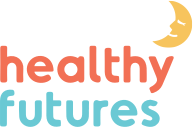Your Body
In weeks 33-36 of your pregnancy, you may:
Have shortness of breath – your growing uterus is crowding your lungs and stomach. Try sitting or standing as straight as possible and eating frequent small meals. Also, pace your activities so your body doesn’t need to work as hard.
Develop hemorrhoids – drink at least six to eight glasses of fluid each day and eat fruits, vegetables, bran cereals, and whole grain breads.
Have difficulty sleeping – avoid late meals and drinks containing caffeine. Try taking an evening walk or relaxation exercises. An extra pillow may help relieve shortness of breath. Give yourself permission to nap if you are able.
Find yourself to be more sensitive and anxious – Talk about your feelings with your spouse / partner or anyone you trust. If you can, take time for yourself to do things you enjoy.
Remember the signs of pre-term labor.
If you experience any of these symptoms, contact your health care provider.
- four or more contractions in one hour
- menstrual-like cramps low in abdomen
- pelvic pressure – feels like baby is pushing down (constant or on-and-off)
- low, dull backache (constant or on-and-off)
- water leaking from vagina
- red, brown or pink vaginal discharge
- abdominal cramps, with or without diarrhea
Your Baby
I am 16 inches to 18 inches long and I weigh about five pounds. I don’t move around as much as before, but my kicks are very strong. I am beginning to collect fat that will help keep me warm after I am born. My permanent tooth buds are forming.
Your Checklist
For Weeks 33-36
1. Prepare your car seat. Babies under age one must always ride in a rear-facing car seat. For information on car seat safety, installation, and resources, click here.
2. Remember to stay connected with your spouse / partner. Parenting is part natural and part learned. Most people parent the way they were raised, yet all parents can grow and learn as they go. Talking about your parenting preferences can help you get mentally prepared for the new baby.
3. Keep up the good work on diet and nutrition. If your pre-pregnancy diet wasn’t the healthiest, don’t worry. Now is a great time for everyone to incorporate better food choices! While you may have a strong appetite at this stage of pregnancy, the reality is that pregnant women need only about 300 extra calories a day, which is equal to a bowl of cereal with skim milk and a banana. Here is a list to help you ensure you and your baby are getting important vitamins and minerals during the final weeks of pregnancy.
Complex Carbohydrates – Provide energy and contain fiber to prevent constipation. Examples are fruits, vegetables, and whole grains like oats, brown rice, and pasta.
Protein and Iron – Are necessary for blood production and function. Examples include lean meats, tofu, soy products, beans, nuts, and egg whites
Calcium – Builds strong bones and teeth. Examples of good calcium sources are milk, cheese, yogurt, dark leafy greens, and calcium fortified cereals, breads, and orange juice.
Healthy Fats – Some healthy fat is necessary for healthy development. Good choices include unsaturated oils such as olive oil, nuts, and avocados.
Sweet and Salty – It’s okay to enjoy a sweet or salty treat in moderation. But remember, too much salt can increase blood pressure which is harmful to both mom and baby. Also, sweets and treats are empty calories that leave less room for healthy food choices.
Questions to Ask your Health Care Provider
Keep a list of questions you’d like to ask your health provider. It is normal to have many questions and concerns. Here are a few important topics you may want to discuss.
1. Now is the time to start thinking about whether you want your male child circumcised. Circumcision is the surgical removal of the foreskin from the penis. Discuss any questions or concerns you have with your health care provider.
Your Healthy Futures Nurse is also here for you. Contact your healthy futures nurse if you have any questions or concerns.




